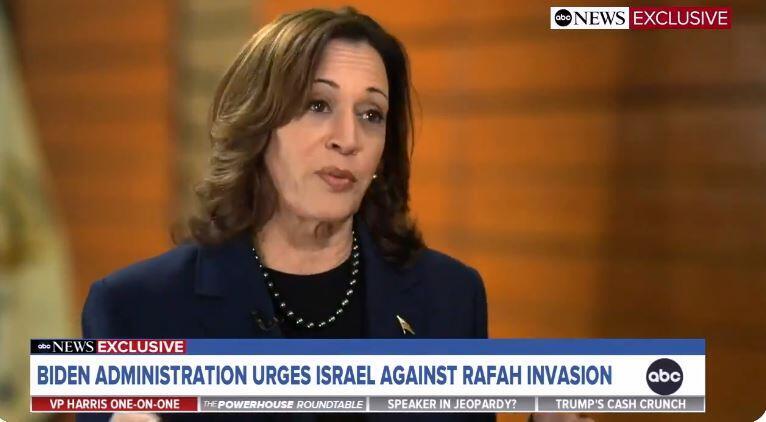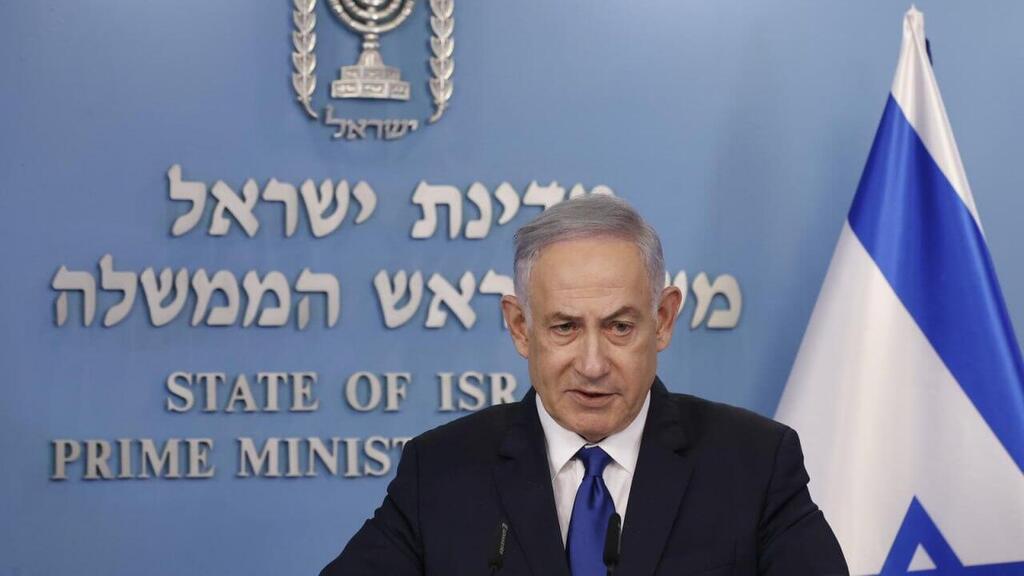The comments of U.S. Vice President Kamala Harris on Sunday warning against any Israeli offensive on Rafah were not off the cuff. Her wording of the plight of displaced Palestinians sheltering there was full of empathy. She referred to them as "folks," the term American politicians use when speaking of their constituents, in Missouri or in her case, California.
Nearly six months since the worst massacre in its history, which evoked extraordinary international support and empathy, Israel is now more isolated than it has ever been and is in direct conflict with the United States on a variety of tactical matters.
Strategically, the two countries agree that Hamas must not rule the Gaza Strip, the hostages must be freed, and Iran and its regional allies must be deterred. But those agreements, as important as they are, are no more than headlines, at best and meaningless slogans at worse.
Defense Minister Yoav Gallant departed for Washington on Sunday. In the past, administration officials considered him a trigger-happy hot head. They have not changed that view but do understand that Gallant is not a liar, and that he has a strong position in the current Israeli coalition, especially during the emerging crisis of the proposed legislation to exempt ultra-Orthodox men from military service.
Gallant promoted a plan to bring into Gaza members of the Fatah organization who would been trained by the U.S., so that they take control over areas where Hamas was either eliminated or has withdrawn from. Netanyahu blocked the plan and continues to disrupt any other effective initiative for the future of the Strip.
Gallant can expect to have difficult conversations with the American officials he meets, or in diplomatic terms the discussions will be "very frank." Jerusalem has heard the Biden administration's position that there should be no assault on Rafah, not now and not in a couple of months from now.
The Americans have lost faith in the organizational abilities of Netanyahu's government. If the Israelis are not able to ensure that there is no hunger in the areas under their military control in northern Gaza, how could they be trusted to evacuate over a million civilians away from harm's way in Rafah and avoid a humanitarian catastrophe? A friend who is part of a Washingtonian think tank asked.
As Harris herself confirmed, all options are on the table, if Israel launches its offensive on Rafah. The U.S. can delay arms shipments, limit the delivery of offensive weapons and can even remove their diplomatic defense of Israel - using their veto power, in the security council.
The government's obsession with Rafah only limits the military's ability to operate freely in the fighting. If the IDF want to carry out a limited operation in the southern- most city in the Strip, it would be seen as a slap in the face of Israel's closest ally.
Netanyahu's repeated declarations serve his political campaign but not the objective of eliminating Hamas. By his own statements, he has made the question of Rafah into an international red-line that must not be crossed. It is the prime minister's way. He will now be able to blame others for failing to reach the objectives of the war.
Israelis must understand the American position. The White House provided Israel with the means to defeat Hamas, including everything from international backing to weapons, from empathy to sound advice, while Israel wages the longest war since the war of Independence.
The military capabilities of Hamas were severely impacted although not entirely, destroyed. Its leaders have thus far been able to survive in the underground tunnels.
But all the U.S. had asked was concern for the civilian population and a clear plan for the day after the war, which Jerusalem refuses to consider, while the damaging images of destruction in the Strip are often posted on social media platforms by gleeful Israeli soldiers.
Netanyahu appears to seek any opportunity for conflict with the White House. The Biden administration is not asking for an end to the fight against Hamas. They want to prevent the war from escalating and for civilian casualties to be reduced, to prevent a regional catastrophe. They understand that the IDF will act against Hamas in Rafah as well but do not want to see a large-scale offensive there, like the one in Khan Younis or in the north of the Strip.
The criticism of Israel stems primarily from the images of civilian suffering. The Americans are tired of explaining to the Israelis that humanitarian aid is in Jerusalem's interest. If Israel would have moved faster in that regard, and the threat of mass starvation would have been nullified, Washington would have expressed a different position, including on Rafah.
U.S. President Joe Biden and his aids are forced to chase after Netanyahu for the simplest of things: opening land passages for aid trucks to enter the Strip, delivery of flour, gestures to the civilians there, during the Muslim holy month of Ramadan.
But Netanyahu was evasive, he broke his promises or caused delays. This is no way to respond to Israel's greatest ally, especially in times of war.
If the change of tone in Washington is the result of internal American politics? That is a possibility. But officials in the administration say that the U.S. elections would not be determined by voters in Michigan who do not cast their ballots for Biden. They insist that internal politics is not the main motivation behind Biden's positions. It is they say the sense that "no one in the world has any idea what Netanyahu hopes to achieve after the war, and until recently by the concern for humanitarian aid.
They are concerned for the Biden legacy. The images and reports of civilian suffering, coming out of Gaza are horrendous and have historic significance.
Israelis are told by Washington that only a prolonged cease-fire or an end to the war, would bring about an end to Hezbollah and Houthi attacks. Security officials here hoped for an American initiative to deter Iran by aggressive action against the Houthis and Hezbollah.
For the IDF, the Hamas massacre of October 7 showed that there can be no security stability in the region if Iran is not punished. Israeli security officials want the U.S. to take up that challenge and are critical of the failing of the administration to do so. But senior officials have said that they hear a clear "no" from their counterparts and that the United States has no interest in the war extending to a wider conflict between American and Iran.
While on the question of post war Gaza, the administration is most in dispute with Netanyahu, on Iran there is a more significant disagreement in policy that includes most in Israel's leadership roles.
This writer has, not for lack of trying, been unable to understand how the Biden administration hopes to achieve an alliance of moderate Mideast nations without exacting a price from Tehran, even if Netanyahu agrees to the terms of the Saudi initiative and if Hamas is ultimately defeated.
 Nadav Eyal
Nadav EyalThe U.S. has no real strategy for the Middle East and especially not for Iran and it is clearly felt. But as Israel in its current state as a pariah nation, with a prime minister in direct confrontation with the U.S. president, it is unlikely to convince Washington of adopting a different path.
In the end Israel is not lacking an American strategy, but one of its own, to plan a future for Gaza, to defeat Hamas and to reinstate its deterrence in the face of Iran and its proxies so that the residents of the north would be willing and able to return home, feeling safe and secure. Such as strategy cannot be a state secret, but rather a transparent process.





